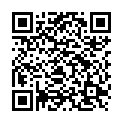|
|
| Modulbezeichnung (engl.):
Statistics |
|
| Code: BITM-231 |
|
|
4V+2U (6 Semesterwochenstunden) |
|
5 |
| Studiensemester: 2 |
| Pflichtfach: ja |
Arbeitssprache:
Englisch |
Prüfungsart:
Klausur (90 Minuten; Wiederholung semesterweise)
[letzte Änderung 11.12.2019]
|
BITM-231 (P420-0452) Internationales Tourismus-Management, Bachelor, ASPO 01.10.2020
, 2. Semester, Pflichtfach
geeignet für Austauschstudenten mit learning agreement
|
|
Die Präsenzzeit dieses Moduls umfasst bei 15 Semesterwochen 90 Veranstaltungsstunden (= 67.5 Zeitstunden). Der Gesamtumfang des Moduls beträgt bei 5 Creditpoints 150 Stunden (30 Std/ECTS). Daher stehen für die Vor- und Nachbereitung der Veranstaltung zusammen mit der Prüfungsvorbereitung 82.5 Stunden zur Verfügung.
|
Empfohlene Voraussetzungen (Module):
BITM-141 Mathematik
[letzte Änderung 06.03.2020]
|
Als Vorkenntnis empfohlen für Module:
BITM-350 Makroökonomie
BITM-521 Außenwirtschaft und Wirtschaftspolitik
[letzte Änderung 26.06.2025]
|
Modulverantwortung:
Prof. Dr. Teresa Melo |
Dozent/innen: Prof. Dr. Teresa Melo
[letzte Änderung 25.11.2019]
|
Lernziele:
After successfully completing this module students will be able:
- to explain basic concepts of descriptive statistics for univariate and bivariate data analysis,
- to select appropriate methods for statistical data analysis and apply them in the context of business applications,
- to create visual representations of data,
- to analyze, quantify and interpret relationships between two variables,
- to describe and model random phenomena using concepts of probability theory,
- to explain basic probability rules and apply them to exemplary business statistical problems,
- to calculate and interpret probabilities,
- to apply special discrete and continuous probability distributions to business applications (e. g. binomial and normal distributions),
- to interpret and communicate the results obtained from a statistical analysis.
[OE+0+0+0+0+0+0=0]
[letzte Änderung 15.12.2019]
|
Inhalt:
Descriptive statistics:
- Data sources and data collection methods
- Types of variables and scales of measurement
- Tabulation of frequency distributions for grouped and non-grouped data
- Displaying categorical and quantitative data
- Description of univariate data sets using measures of location and dispersion
- Bivariate data analysis: graphical representation of data sets, cross tabulation, measures of association and correlation (contingency, correlation, rank correlation)
- Simple linear regression
Probability theory:
- Definition of probability and basic concepts
- Fundamentals of set theory
- Empirical interpretation of probabilities (Laplace probability, statistical probability, subjective probability)
- Axioms of Kolmogorov
- Elementary calculation rules
- Conditional probabilities
- Stochastic independent events
- Total probability, Bayes’ rule
- Discrete and continuous random variables
- Special probability models (e.g. Bernoulli, binomial and normal distributions)
[letzte Änderung 15.12.2019]
|
Weitere Lehrmethoden und Medien:
Lectures supported by slides (projector) and blackboard (theory and example calculations). The lectures are supplemented by exercises and tutorials. In order to support independent work, multiple exercise sheets covering the whole range of topics in this module are provided. Solutions are discussed with the students in the tutorials. Both the lecture notes and the exercise sheets are available to students in electronic form.
[letzte Änderung 15.12.2019]
|
Literatur:
Bowerman, O’Connell, Murphree: Business Statistics in Practice, international edition, 6th edition, McGraw-Hill/Irvin, 2011
OpenStax College: Introductory Business Statistics, OpenStax CNX, https://openstax.org/details/books/introductory-business-statistics, 2019
Sharpe, De Veaux, Velleman: Business Statistics, 3rd edition, Pearson, 2015
Sweeney, Williams, Anderson: Fundamentals of Business Statistics, international edition, 6th edition, Cengage Learning Emea, 2011
Weiers: Introductory Business Statistics, international edition, 7th edition, Cengage Learning Emea, 2011
[letzte Änderung 15.12.2019]
|


